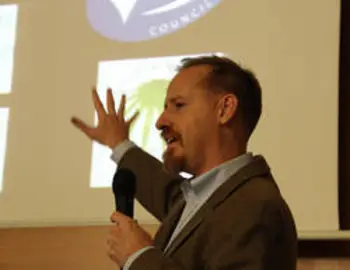How effective are forest conservation initiatives?
January 17, 2014.
Around 40 international experts met in Barcelona, Spain during December 10-12, 2013 to discuss emerging evidence on the effectiveness of forest conservation initiatives around the world.
The workshop was jointly organized by ZEF and the Institute for Environmental Science and Technology (ICTA) at the Autonomous University of Barcelona with support from the Robert Bosch Foundation through ZEF’s project “Shaping environmental policies for sustainable forest bioeconomies”, the European Association of Environmental and Resource Economists (EAERE), and IDDRI.
The workshop aimed at critically assessing the potential and limitations of innovative research on the effectiveness of conservation policy instruments, promoting specialized exchange between research teams evaluating the impact of forest conservation policies (such as Payments for Environmental Services and Protected Areas), identifying opportunities for collaboration between research teams and selected policy makers and donor representatives, and developing recommendations on how impact evaluations can be better integrated into conservation policy design and implementation.
Additional workshop documentation will be available on ZEF’s website soon.
You can watch the talks and presentations on ZEF's youtube channel and find some photos on our facebook site
Day 1
Keynote address: Reconciling Rigor & Practicality: roles of context forevaluation-based policy advice - Alexander Pfaff, Duke University
Using experiments for ex-ante evaluation of forest conservationinitiatives - Arild Angelsen, Norwegian University of Life Sciences
Evaluation of the Long-Term Sustainability of Land Use Changeinduced by Payments for Environmental Services in Quindío, Colombia - Stefano Pagiola, World Bank
Can Indonesia's moratorium on new oil palm and timber concessionsreduce emissions from deforestation? - Jonah Busch, Conservation International
Measuring effectiveness, efficiency and equity in an experimentalPayments for Ecosystem Services trial - Adrian Martin, University of East Anglia
How effective are biodiversity conservation payments in Mexico? - Sébastien Costedoat, Universitat Autònoma de Barcelona
Measuring the impact of protected areas network on land use dynamics:the Chilean cas2 - Rodrigo A. Arriagada, Pontifical Catholic University of Chile
What drives forest leakage? - Payal Shah, University of Illinois at Urbana Champaign
Do conservation incentives increase the effectiveness of protected areas? A spatial matching analysis of the Bolsa Floresta Program in theBrazilian Amazon - Elías Cisneros, University of Bonn
Social and environmental impacts of FSC certification in Indonesia - Colby Loucks, World Wildlife Fund
Day 2
Keynote address: Beyond average effects: heterogeneity and causalmechanisms - Paul Ferraro, Georgia State University
Is what is good for the forest good for the people: Evaluating the impactsof protected areas on ecosystem services and poverty in Indonesia - Daniela Miteva, The Nature Conservancy
PES design and impact evaluation - Gwen Le Velly, CERDI-CNRS
Why participate in PES? Socioeconomic impacts of Costa Rica’sProgram - Erin Sills, North Carolina State University
Marine protected areas and poverty alleviation: insights from Papua,Indonesia - Louise Glew, World Wildlife Fund
What types of investment can most cost-effectively ensure ecosystemservice provision? A randomized program evaluation - Nigel Asquith, Fundación Natura-Bolivia
Day 3
Perspectives: "Lessons from impact evaluation in the conservation sector and beyond" -Madeleine Bottrill, Conservation International, USA, Philip Davies, International Initiative for Impact Evaluation, UK
Impact Evaluation at CI: Context, case studies and opportunities" - Madeleine Bottrill, Conservation International, USA,
Perspectives: "Lessons from impact evaluation in the conservation sector and beyond" - Philip Davies, International Initiative for Impact Evaluation, UK



